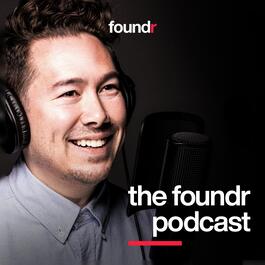
274: Real Estate Mogul Grant Cardone Talks Tenacity, the 10X Rule, And More
Turning Obsession Into Success Real estate mogul Grant Cardone explains his obsessive approach to business, and his 10X Rule for goal-setting. Grant Cardone, a self-made real estate mogul, sales and marketing trainer, and bestselling author, credits his success in life to persistence and an obsession with being the best. That, and his time working at a car dealership. “The first real job I had was my sixth job,” he says of the gig. “I was fired from my first five. Fired from my sixth job. I was fired six times, but I wouldn’t leave the last job. I just would not leave.” Part of the reason Cardone’s bosses kept getting so fed up with him was that he was a terrible driver. Not a great quality when working in the car business, as he kept smashing up the merchandise. But his relentlessness made up for it. “I would wreck their cars and they would fire me,” he says. “And then before I would leave, I would go sell something and they would keep me on. Selling something was always forgiveness.” By the time Cardone finally did leave, he was the highest-grossing salesman at the dealership. He was the first one there in the morning and the last one to leave at night, his goal always being to make himself indispensable to the company. And to make a lot of money. So yeah, Cardone is, well, obsessive. Coming up from nothing, financially speaking, he quickly learned that was the way to rise to the top. It’s helped him achieve his lifelong goals to make money, have a successful career, and help people along the way. Now, Cardone’s exploring that approach to life and business with his new book, appropriately titled Be Obsessed or Be Average. The Origins of Obsession In his book, Cardone writes, “I didn’t have a father who could lead me to the land of the rich, lend me a million dollars for my first real estate deal, assist with political connections through introductions at country clubs, or show me the ways of business.” His fate was forged, instead, by the tragic death of his father when Cardone was just 10 years old. Until that day, he had watched his father work hard to provide for his wife and his five children, starting a variety of businesses, from opening a grocery store to starting a life insurance company, and finally becoming a licensed stock broker. His father’s “drive and his obsession,” as Cardone puts it, were inspiring. And when he died, leaving the family behind to get by on their own, Cardone became obsessed himself—with the idea of creating enough wealth so he would never worry about money again. But his was a winding path to success. He carried around a lot of anger about his difficult situation, and fell into the wrong crowd in high school. He started smoking and drinking. He got into a lot of fights and a lot of trouble. By the time Cardone graduated, he writes in his book, “I had a massive daily drug problem.” He did go to college, however, fulfilling a promise his mother had made to his father. He graduated with an accounting degree after what he called “five long, miserable years.” At 23, he was broke and still doing drugs every day, just barely getting by at his car dealership jbo. “I was 20 pounds underweight and had a gray complexion, thanks to the drugs,” he writes. At 25, his mother gave him an ultimatum: get clean or never come back. Cardone checked himself into rehab, and although he says it didn’t address the underlying problem, he discovered he could get by without drugs. He vowed to never touch them again and to use his “addictive personality” to his advantage. Turning It Around After rehab, his boss gave him his job at the dealership back, a move that Cardone says probably saved his life. He worked harder than any other associate, and doubled his earnings in the process. “It wasn’t until I figured out how to make somebody else rich that I could be rich,” he says. Cardone finally left his sales job at the car dealership and moved to a sales consulting firm. “I treated my little department as, ‘This is my company within a company.’ And I wanted to make that company as a strong as possible,” he says. When he left the firm to go out on his own, it was because he felt there was no more opportunity to grow. So at 29 he started his first company, Cardone Automotive, a sales consulting business for the automotive industry. By 30, he’d already made his first million, but it didn’t come easy. “That was a company where I was cold-calling other businesses across the U.S. and Canada.” Cardone was working hard, doing what most entrepreneurs do and devoting all of his time to his business. “I was just hustling. Everything was a transaction...to get money and pay the taxes and have a little bit of money left over.” And even though his company was making money, year after year, Cardone knew he had to do more to become a true entrepreneur. ‘You’re Not a Business’ Cardone had never stopped to think about what an entrepreneur really is. Sure, he’d started a business and it was running smoothly, but he wasn’t reinvesting in it. He wasn’t thinking about marketing or expanding. Instead, he was following the old adage, hard work pays off. “All I was doing was knocking on doors. It was pure effort. I wasn’t spending money. I wouldn’t spend real money until I was 50 years old, about 10 years ago, when a guy said, ‘Bro, you’re not a business.’” Cardone knew it was time for a change if he wanted to achieve the kind of success he’d set his sights on. He had to rethink how to do business, how to expand, and how to get the word out. “The first thing I did was flipped everything. I could no longer be sales first. I had to be marketing first. Marketing and branding. Because to me, a business is, I can walk away from it and it will still operate. I was a guy. I was no different than when I was 30, just pounding doors.” That’s when he came up with the 10X Rule. The 10X Rule In 2011, Cardone published his personal business philosophy in his first book, called The 10X Rule: The Only Difference Between Success and Failure. The 10X Rule challenges readers to estimate the amount of time and effort it will take to achieve a goal and then multiply that estimate by 10. It also trains readers to think differently about what they can achieve in the first place. Cardone writes that most people underestimate themselves and what they can achieve. If they identify a goal, say making $100,000 in a fiscal year, they should multiply that by 10. “10X woke me up. 10X was not for the public. 10X was for me,” he says. He created it because he was trying to figure out why, despite his success as an entrepreneur, he wasn’t growing the way he had expected. “I work hard, I’ve got great products, I’ve got a great reputation, great reviews. People like me. They like my content. They like my content actually better than they like me. That might have been an exaggeration.” Is 10X totally achievable? Not necessarily, but that’s not really the point of the rule. It’s to shake up the way you perceive what’s possible. “It’s not achievable, but it’s worth it. You have four, five million dollars sitting in an account today. What if you had $50 million? It’s not achievable, but it’s worth going for it. It’s fun shit, man.” Even if you can’t achieve 10X, anything you hit will surpass your original goal. Investing in His Brand Cardone started toward his own 10X goal by spending the money he made, reinvesting in his business, starting or acquiring new businesses, and making himself known across industries. “People knew me in a particular industry. They didn’t know me in every industry. So the first thing that I took on was that I need to get people know me in every industry while I continue to knock on doors and pay my bills.” He began by writing books and business programs, which got his brand out there while generating their own money. His next two businesses were sales education platforms, Cardone Education and Cardone On-Demand, online training seminars that established him as a subject matter expert and drew in revenue from large and small businesses alike. He also started to grow his influence on social media. “I started with one follower, just like everybody else, and I was the follower. My second follower was my wife because I created an account for her on YouTube and said you’re going to follow me.” Currently, he has 6.1 million followers on Facebook, almost 395,000 followers on Twitter, 2 million followers on Instagram, and almost 1.2 million subscribers on YouTube. “I’ve grinded for every one of those followers. And delivered content to them so I could scale out.” His goal was to expand his reach beyond the U.S., and bring in a global audience for his 10x message. He now holds speaking engagements that attract thousands across the globe. He consults for major brands, and his videos on Grant Cardone TV get thousands of views. Investing in Himself The best business advice Cardone has ever received came not from someone in business, but from his mother, he once told CNBC. “She said, ‘The best investment you will ever make is in yourself. It’s a no-lose deal. It will always give you a return. Nobody can take it from you. It’s yours.’” Cardone looks for every opportunity to improve himself, whether that’s a charity event that helps him build new relationships or a seminar that will help him acquire new skills or refine old ones. “People should be invested in the beginning, just in themselves. Every chance you can get to go to something that could possibly help you. If it has a 1% chance of even adding to the value. Spend the money. Don’t sit on the money. Money’s useless.” He eschews saving money or even spending it on something most people wouldn’t think twice about—buying a house. “That’s the dumbest thing anybody could do. That’s the dumbest thing I ever did was buy a house. I bought a house and I didn’t improve myself. I spent more time picking furniture out than I did , “Hey, how do I fix me?” What’s 10x for Cardone, Now? So what’s the next big move for Cardone? Turning those millions into billions, of course. “10x is how do I do a billion dollars a year in income? And then how do I do $10 billion in real estate? How do I have a $10 billion real estate portfolio? How do I start competing with these banks so they’re like, you know what? We really don’t like all this noise you’re making. You’re a noisy guy. And we’re kind of getting tired of it.” Cardone’s ability to disrupt industries and make noise has landed him where he is today, as an influential sales trainer and real estate mogul. He turned an obsession into a reality and used a quirk in his personality to create a global empire. Advice for Budding Entrepreneurs Cardone now runs five privately held companies, including Cardone Capital, an $800 million real estate company. His 30-year success as an entrepreneur has given him the unique opportunity to share insights with other budding business moguls. He shared with us some of his best bits of advice. ‘Make money your battle cry.’ “Make money. Make money. Make money your battle cry. Go collect money. Don’t make money, just go collect money. Have a great product. Have a great service. Over-deliver. Collect money. Charge for it.” Put your team in the spotlight. “If you notice, I show off my people a lot. I don’t keep them behind the scenes. I’m like here, let’s have more than the Cardone show. Why do I do that? Where did I learn that? Great companies.” Don’t cling to your money—reinvest it. “The first sheet of paper I get every day is how much cash I have. That’s not for bragging rights. It’s because I want to get rid of it. It’s like trash. I want to get rid of this money. Money is being devalued worldwide right now. I didn’t say I have no reserves, but I don’t need $167 million.” Interview by Nathan Chan, feature article reprinted from Foundr Magazine, by Laurie Mega Key Takeaways How the death of Cardone’s father shaped him from a young age The winding road to overcoming drug addiction Why Cardone was fired from his car dealership job six times—and why he kept getting rehired How Cardone channeled his addictive personality into his work The launch of Cardone Automotive, and how it got him his first $1 million in a year Why Cardone decided to rethink the way he ran his business What the 10X rule means, and how it can be applied to any aspect of your life How Cardone leveled up his personal branding and became an influencer Why Cardone is passionate about the idea of investing in yourself A sneak peek into his latest book Be Obsessed or Be Average
From "The Foundr Podcast with Nathan Chan"




Comments
Add comment Feedback